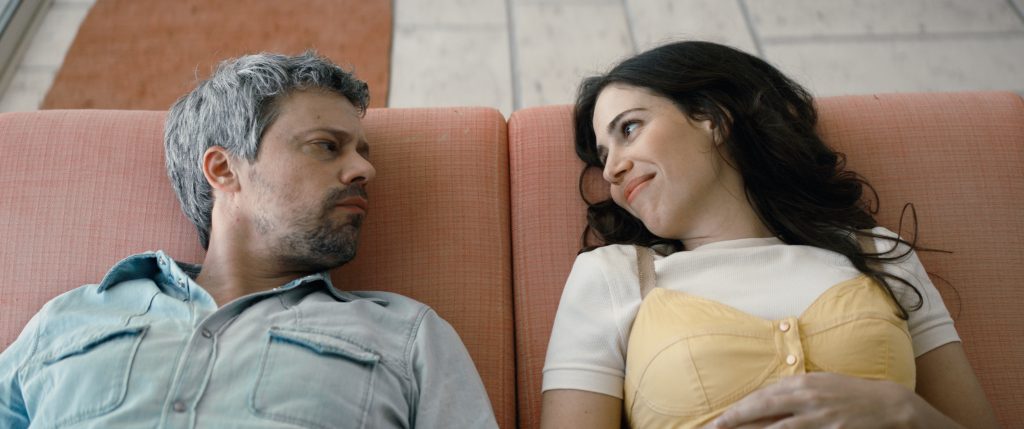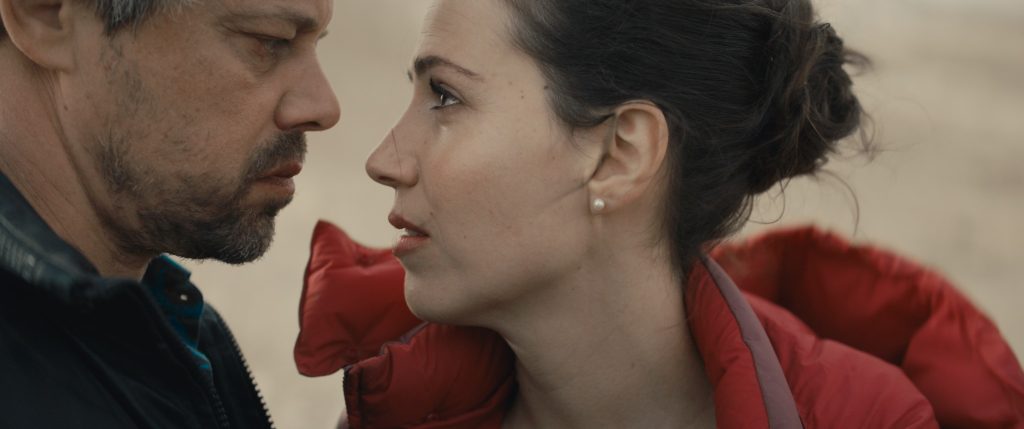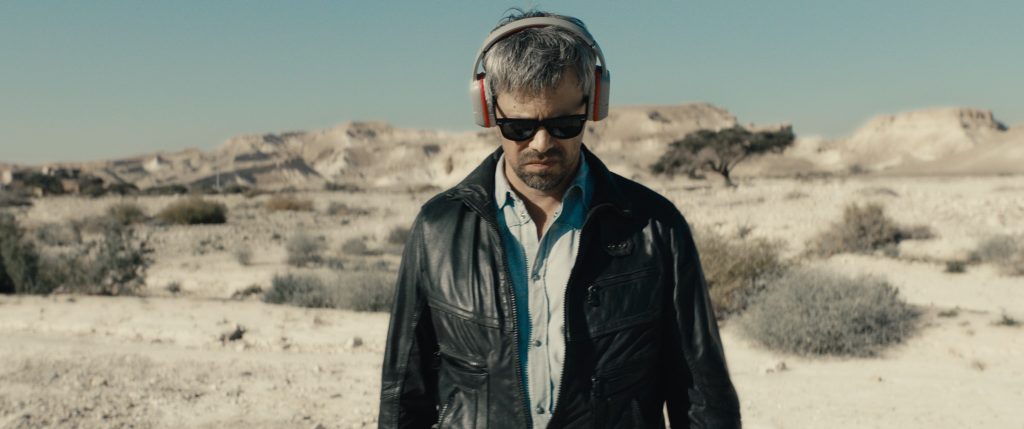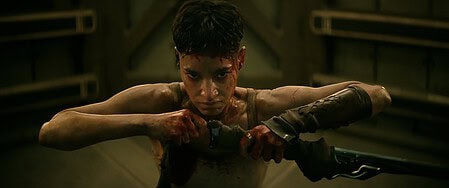Nadav Lapid, the Israeli auteur who made a splash in 2019 with his Golden Bear-winning film Synonyms, has never been shy about his criticism of and outright disdain for the Israeli government. In his films, the country’s police state leaves irrevocable effects on its collective male identity, and its oppression of citizens from neighboring countries silences any outside voices, sometimes permanently.
If Synonyms was an attempt to escape that history, Ahed’s Knee is a direct confrontation of it. Lapid has always been a filmmaker at war with his own country, but Ahed’s Knee is a first full-frontal assault, seething with the kind of pointed rage that very few films manage to muster.
Lapid has never had a stronger author surrogate than the director simply known as Y, portrayed with immense duality by Avshalom Pollack, who is the guest of honor at a screening of his own film in the remote desert town of Sapir. Upon arriving there, he meets Yahalom, an earnest feature debut from radiant newcomer Nur Fibak, his contact from the Ministry of Culture who is sponsoring his screening. She informs him that, before being paid for his visit, he will need to sign a form committing to specific topics of discussion for his opening remarks.
The choices provided are vapid at best and propagandistic at worst, not at all reflective of Y or his work. It leaves him conflicted; he is in need of funding to produce his next piece, an art installation based on the work of a Palestinian activist, but doesn’t his signature work against that very installation and everything he stands for?

Though the film never properly conveys the real-world stakes of…what ultimately feels like signing a piece of paper, it’s the personal stakes that engage us, particularly in the film’s second act. As Y recounts to Yahalom his traumatic experiences as part of the Israeli army, his recollection devolves into an explosive rage against the machine. Yahalom, a bubbly admirer of Y and his work who has submitted to her own country’s censorship, is forced to reckon with this hypocrisy.
Y rips apart her niceties with an enraged audacity reminiscent of Howard Beale from Network, which is fitting. Nadav Lapid wants you to get mad, and he is so specific about it that you have to gawk at the fact that the film was supported by the literal Israeli Ministry of Culture. Palpable irony. Cinematographer Shai Goldman’s camera attempts to capture Y’s anger with frantic handheld camerawork, tight on Y’s buggy eyes and frothing lips. It’s a culminating moment in a movie that is very interested in the tactile closeness of the human body, perhaps an attempt to find some honesty and humanity in a country devoid of it.
Our characters are often captured in close-ups, with Y and Yahalom standing so close to each other in certain scenes that the sexual tension approaches absurdity. During the army flashbacks, many scenes include the men supporting and consoling each other, bouncing to one another, touching and simply releasing noise from within their scared, hollow bodies. It’s at times comforting, at times utterly bizarre.

This is in contrast to the film’s consistent whip panning, a technique that makes this film’s visual language completely singular. This might make Ahed’s Knee a dealbreaker for some––some of the back-and-forths are so elaborate and twisty that it can be nauseating––but for those who can stand it, it does create a fascinatingly dissociative experience. Not only is it a bold choice that shows skillful control behind the camera, but it informs Y as a character. Most of these rapid movements are from Y’s perspective, one that is self-centered but also distracted. Sure, Y could probably give more people the time of day, but he’s dealing with such infuriating circumstances that any goodwill is tossed out the window.
It’s this complexity that makes Y unlikable but not to a fault, an engaging character to observe if anything else. Lapid draws him with a strong directorial and authorial voice, elevating the film’s perhaps alienating visual identity above typical cryptic arthouse fare.
It also helps that the film’s deadpan sense of humor keeps everything fairly balanced. Y makes a stoic first impression, but one moment of comic absurdity after the next, it’s clear he’s just barely holding on. He already has his mother slowly dying of lung cancer, a side plot that is a bit too underplayed for it to emotionally resonate, but now this? It’s no wonder he reveals himself to be whiny, conceited, and just socially unkempt.

To spoil any specific moment sprinkled throughout the film’s first two acts would ruin the fun, but I will say Bill Withers’ “Lovely Day” is used to excellent affect. This all helps to balance the film tonally; the third act goes to some dark places, so some humor beforehand makes for a more multifaceted, complete experience as a viewer, not to mention making the ending all the more heartbreaking.
Ahed’s Knee is Nadav Lapid at his most confident and cohesive as a writer-director. It might not be for everyone, but for those who are invested in his evolution as a filmmaker, this is a huge leap forward, not only in terms of style but also in terms of raw energy. It’s a deeply personal story crafted with so much detail and strong choices, but also with deep unrest that drives it all forward.
At the New York Film Festival Q&A for this film, Lapid spoke about how this film was written within two weeks, by far the fastest he has ever written a feature screenplay. There’s a fire there, a confidence to not just engage with his country head-on, but to take no prisoners in the process.
Ahed’s Knee is currently playing in select theaters and virtual cinemas courtesy of Kino Lorber.

Larry Fried is a filmmaker, writer, and podcaster based in New Jersey. He is the host and creator of the podcast “My Favorite Movie is…,” a podcast dedicated to helping filmmakers make somebody’s next favorite movie. He is also the Visual Content Manager for Special Olympics New Jersey, an organization dedicated to competition and training opportunities for athletes with intellectual disabilities across the Garden State.







